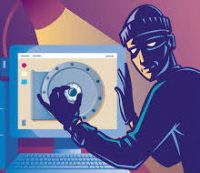
If you have been surfing the Internet on a Windows computer without a good antivirus program it is highly likely to be infected with a virus. We strongly recommend you subscribe to a good antivirus product and keep your subscription up to date. Do not forget your smart phone needs virus protection as well.
Whilst Macs and Linux computers have a reputation for being resistant to viruses, malware still exists for these platforms and we recommend using an antivirus product.
Malware tends to fall into two basic categories:
1. Nuisance software. Usually this is software that you did not intend to install, often piggy backing with software you did want. This type of software creates popup ads, hijacks your browser home page and/or search function. Most antivirus systems will ignore this type of program because:
a. You have authorised it to be installed (but would not have realised it).
b. It generally does not harm (but is annoying).
c. It can usually be uninstalled though this can be tricky (we can do this for you to give a faster, more user-friendly computer).
2. Viruses, Trojans, rootkits. These do harm by taking over your system resources, or stealing personal data. Usually you will not know you have one on you system as it goes about its work taking over your computer. Other viruses like Cryptolocker will encrypt your files or lock up your system until a ransom is paid. For this reason it is important to have a back-up.
A number of antivirus procedures may be necessary if your device is affected.
Passwords
Managing a large number of passwords is the bane of most people’s life.
Idealists believe that every login should have a different strong password, and that passwords should be changed frequently. The reality is that nobody can remember that many passwords.
If you want to use a lot of different passwords use a password manager such as LastPass™. A password manager means you can use a different password for each website you visit (more secure if there is a breach) whilst needing to only remember one master password for your device.
Please use a strong password – we still see dictionary words with a couple of numbers added to the end. As a general rule longer passwords are better, and a mix of characters, uppercase, lowercase, numbers and characters.
Try putting numbers in the middle of your password. Many password cracking programs are based on dictionaries, hence our suggestion to ‘salt’ your passwords with numbers and characters within the password not simply added at the end.
